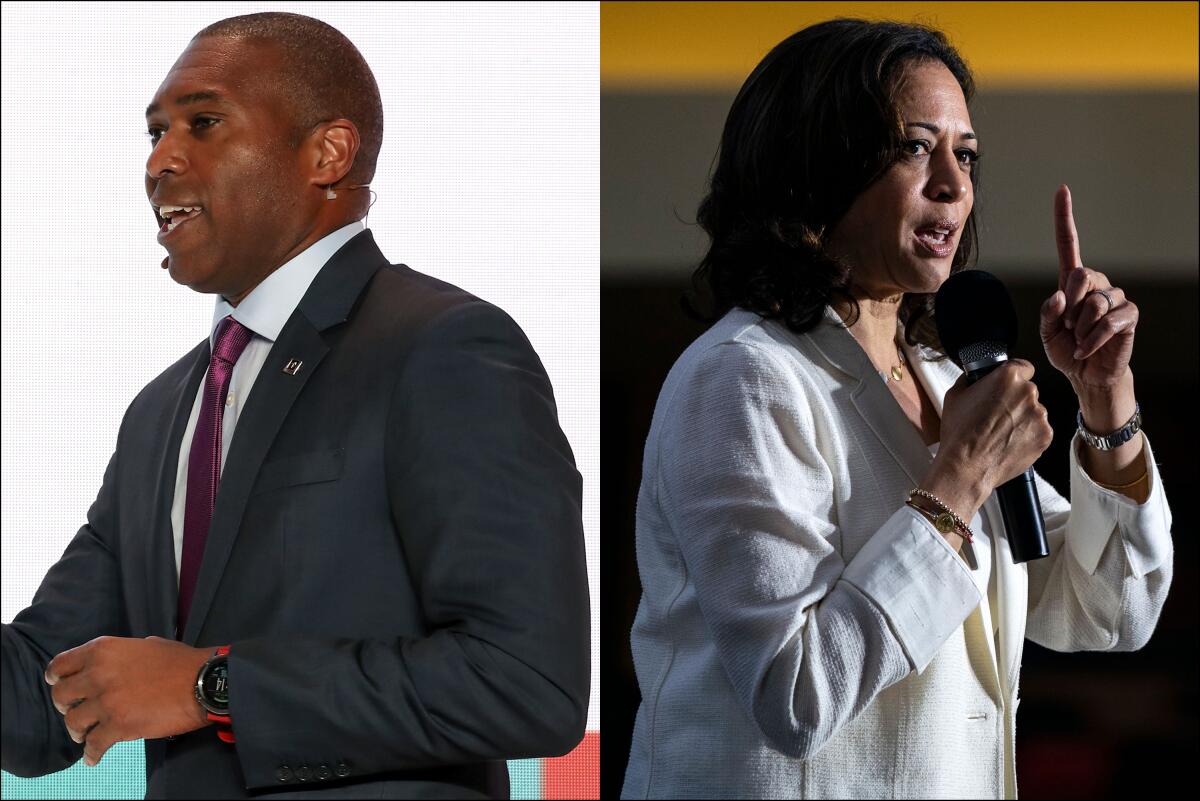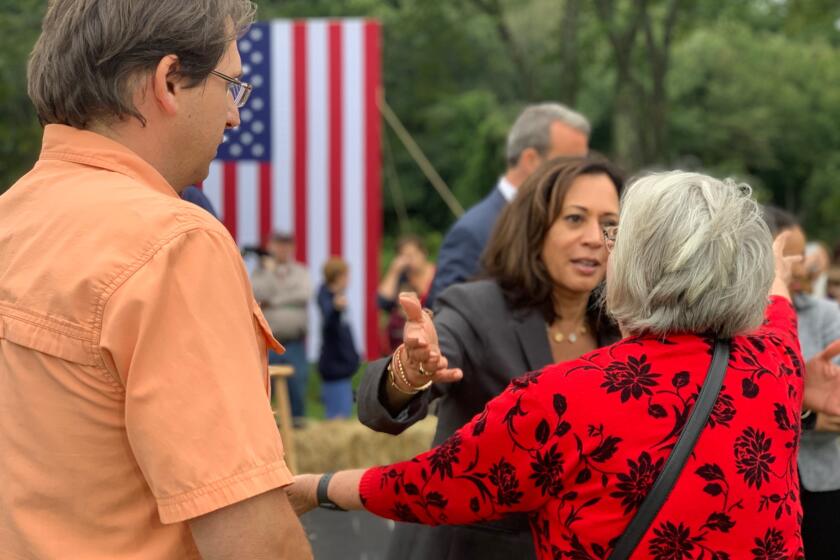Kamala Harris’ brother-in-law is the public face of Uber’s fight with labor. It’s awkward

- Share via
The passage of a landmark bill aimed at increasing wages and benefits for ride-share drivers and other workers has put Sen. Kamala Harris of California in an awkward spot.
The Democratic presidential candidate has close connections, both familial and political, with Uber, but has sided with organized labor in backing the measure that the state Legislature passed Wednesday. The bill limits businesses’ ability to use independent contractors, who have fewer protections under labor law than employees.
Harris’ brother-in-law, Tony West, one of her top political advisors since she first ran for San Francisco district attorney in 2003, has become the public face of Uber’s resistance to the bill. West, who is married to Maya Harris, the senator’s sister and campaign chairwoman, is Uber’s chief legal officer.
Maya Harris’ daughter, Meena Harris, also works at Uber on its diversity and inclusion team.
West told reporters Wednesday that Uber and its rival Lyft were ready to spend more than $60 million on a 2020 ballot measure that would replace the new requirements with rules that would enable the companies to keep treating their drivers as independent contractors instead of employees.
Gov. Gavin Newsom is expected to sign the sweeping bill into law. It could grant new job benefits and pay guarantees to hundreds of thousands of workers in a variety of industries.
Uber spokesman Matt Kallman said West was not pushing Uber’s case with Harris.
“Mr. West has never lobbied Sen. Harris, her Senate office or anyone on her campaign on this or any other issue,” he said.
With momentum flagging, Kamala Harris is counting on Thursday’s debate and a new strategy in Iowa and New Hampshire to reenergize her campaign.
Uber has also retained Laphonza Butler, a senior Harris campaign strategist, to advise the company on its dealings with organized labor.
Butler, who used to lead SEIU California, is a partner at SCRB Strategies, a consulting firm that Uber paid $105,000 during the first half of the year, according to records filed with the California secretary of state. SCRB’s other partners are Juan Rodriguez, who is Harris’ campaign manager, and Sean Clegg and Ace Smith, both senior strategists on her campaign.
The Harris campaign had no immediate comment, and Butler could not be reached. David Beltran, a spokesman for SCRB Strategies, said the firm does not plan on working on Uber’s threatened initiative.
For Harris, the clash between labor and Uber is significant because the decline of workers’ economic security is a major issue in the presidential race.
Jessica Levinson, a Loyola Law School professor and former president of the Los Angeles Ethics Commission, said Harris, a longtime labor ally, had little choice but to back the legislation.
“Not just because labor is in favor of it, but because she’s going to look otherwise like she’s making a decision to benefit her family,” Levinson said.
When Uber drivers around the world went on strike in May, Harris voiced support for them on Twitter.
She did not take a position on the measure until late August, when her campaign spokesman told Vice News she backs the bill and believes “it’s critical we ensure a robust social safety net for all workers and support their right to join a union.”
Other presidential candidates backing the measure include former Vice President Joe Biden, Vermont Sen. Bernie Sanders, Massachusetts Sen. Elizabeth Warren and South Bend, Ind., Mayor Pete Buttigieg.
Steve Smith, a spokesman for the California Labor Federation, said unions were “encouraged to see presidential candidates talking about critical issues like worker misclassification and corporate accountability.”
More to Read
Get the L.A. Times Politics newsletter
Deeply reported insights into legislation, politics and policy from Sacramento, Washington and beyond. In your inbox three times per week.
You may occasionally receive promotional content from the Los Angeles Times.













